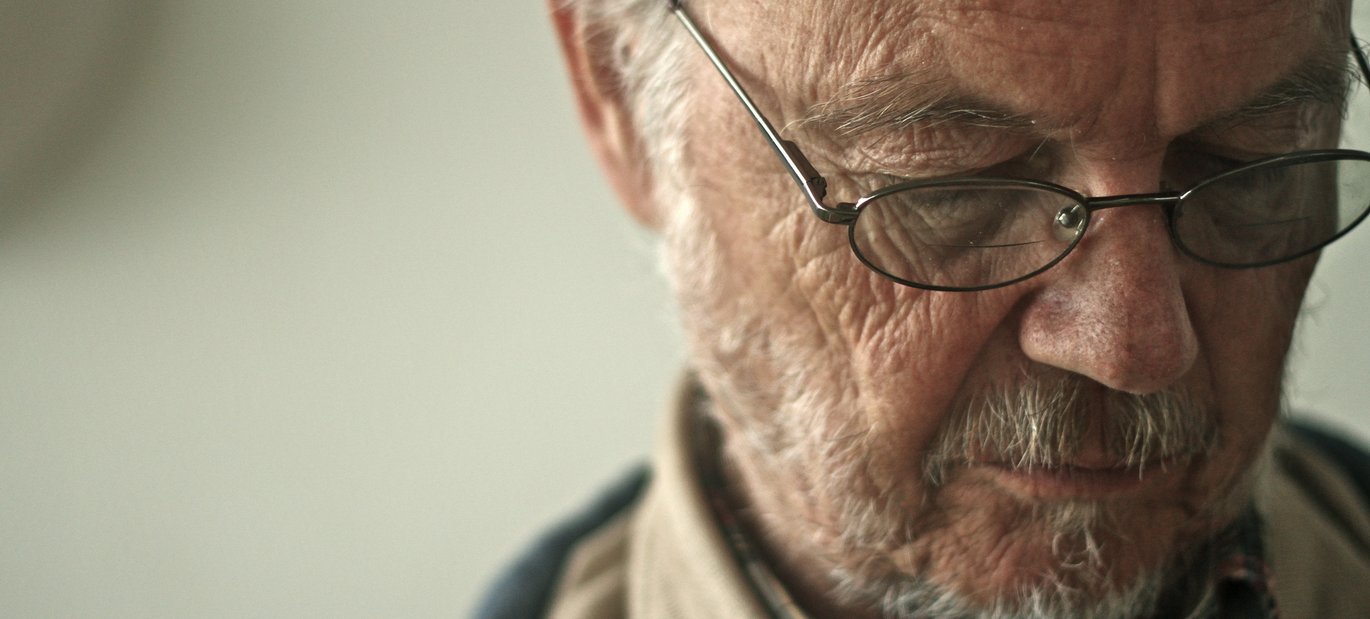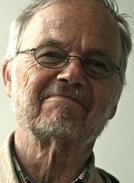44 years in the service of the human mind
Associate professor Thomas Nielsen was one of the founders of the Department of Psychology and Behavioural Sciences in 1968, and he has been around ever since. Now he will serve as a part-time lecturer, and can look back on five decades in the service of the human mind.

Thomas Nielsen is indeed one of the more experienced persons at the Department of Psychology and Behavioural Sciences. He has been part of it ever since the beginning; when the study consisted of only one class that taught pure quackery, when test computers were as big as offices and all academic activities celebrated communism to now, where the department’s research matches international standards, and thousands of young men and women attempt to pass through the eye of the needle to the study of their dreams. In this article you can read about the researcher and facilitator, Thomas Nielsen, and his work at the Department of Psychology and Behavioural Sciences, which spans half a century.
A polemic pioneer
The year is 1968. The revolutionary atmosphere amongst the long-haired psychology students in Copenhagen is in line with the spirit of the time. The critical feelings towards the tired, remote university lecturers, who did not hold degrees in psychology but in philosophy, were running high. The department becomes the scene of numerous blockades and sit-ins: The time has come for something to change in Aarhus.
- It was an ideological rebellion against the professors. I wrote a couple of critical articles in the psychologists’ academic journal, and that’s how I jumped on the bandwagon when a new department was established at AU; It wasn’t my academic work that got me the job, but my polemic sense, Thomas Nielsen says with a smile.
Today, he is the last of the 12 pioneers still at AU, who left Copenhagen in favour of the “untamed Jutland” some 44 years ago. They helped build the Department of Psychology and Behavioural Sciences in offices at the Psychiatric Hospital in Risskov.
- Since then, things have changed dramatically. We’ve gone from being a misunderstood, mumbo-jumbo study to being an extremely popular one, which requires great marks in order to get admitted – that certainly wasn’t the case back then, explains Thomas Nielsen.
The Marxists are coming!
As a science, psychology has also undergone tremendous changes over the past five decades, but not without suffering a few setbacks. Thomas Nielsen remembers the tough conditions in the 70s and 80s when a Marxist wave swept across the university and confined academic professionalism to a secondary position.
- Empirical research was perceived as downright politically incorrect – not to mention counterrevolutionary and bourgeois. The only acceptable way of interpreting the world in the early 70s was in terms of the Marxist dogmatism. Theories were developed on how the evil capitalism poisoned the human mind with a false consciousness, he explains.
Thomas Nielsen took exception to this normative denial of empirical research and rejoiced as the Marxist wave washed away in the wake of the collapse of the Soviet Union.
- Back then, the department was imbued with political controversies, and it rubbed off on the social life and the academic results. Today, we choose to co-operate rather than discuss politics, says Thomas Nielsen.
Empiricism is the way to go
Throughout the years at the Department of Psychology and Behavioural Sciences, empiricism has been the one unifying principle behind Thomas Nielsen’s work.
- Solid knowledge is much better than superficial and abstract theories. In my opinion, empiricism is the core of the psychology study – its raison d’être. It is only within the past 10-15 years that we’ve begun to generate concrete results, explains Thomas Nielsen, who therefore considers psychology a “young science”.
He is also quick to join the choir of critical voices in the current debate on whether the government should provide financial support for psychological treatments that have not been scientifically proven.
- I believe that we should stick with the types of treatment that are backed by empirical research. Otherwise, we’ll end up arguing over postulates, and such disagreements will be settled by whoever does the better job at claiming one thing or another. This has nothing to do with science, says Thomas Nielsen, and thus disagrees with a substantial number of practicing psychologists in Denmark.
Facilitator for the vast majority
Thomas Nielsen cannot be blamed for hiding in his ivory tower. In fact, if one were to mention another thing, which has characterised his career, then it would be the broad facilitation.
It began in 1970, when the editor of the popular radio programme “Leksikon” (“Encyclopedia” in English) called the department with a psychological question. Thomas Nielsen happened to be nearest to the telephone.
- At first I was reluctant, but I gave it a shot. The editor thought that I did such a good job that I decided to stick around for 20 years and answer questions from listeners interested in psychology, says Thomas Nielsen, who has developed a type of “bilingualism” for the purpose:
- Translating psychological theories into regular Danish that everyone understands can be some challenge, but it has been very rewarding for me. At one point, I considered studying journalism, and now you could say that I’ve come up with a fantastic combination.
For years, Thomas Nielsen has been one of the driving forces behind the psychological journal “Research News from Psychology”, which will sign off in connection with his resignation as associate professor.
- It has been a great pleasure and a privilege to edit that journal. All the articles are printed in the Danish Psychological Association’s members’ journal, so in a way I’ve almost held a monopoly position on keeping my colleagues up to date with the latest research. It has been a fantastic opportunity to boost the ordinary, practicing psychologist’s interest in research – as opposed to theory, the empiricist explains.
In the service of the human mind
Thomas Nielsen was originally studying Comparative Literature at the University of Copenhagen, but he quickly became more interested in the authors than their works. Why had they become so odd? What made them write the way they did? His interests gradually shifted to psychology, and particularly depression and anxiety have accounted for a substantial portion of Thomas Nielsen’s research. Throughout his career, he has remained skeptical of the medicinal approach to psychology:
- I’ve always been of the belief that psychological treatment is better than giving the patient a pill. A depression is not a chemical brain defect, but a perfectly natural way of coping with tough adversity in life. It is an evolutionary adjustment and not a disease, he says and elaborates:
- For our ancestors it was better to simply lie down and “deactivate” for a while rather than continue to fight for something, which didn’t pay off. Today, we must learn to handle this reaction, and in this respect, psychology has proven to be a solid alternative to medicinal treatments, explains Thomas Nielsen.
He measures the success of his subject in terms of its applicability to society and his verdict is clear: Psychology does make a difference.
- The progress has been fantastic! Psychological treatments help many people each day, and it is wonderful to see how society keeps an eye on the latest research and is willing to pay for these kinds of treatment. Psychology has become an acknowledged science, and the interest in the subject continues to grow. This is certainly a positive development, says Thomas Nielsen.
A soft landing and a cheerful finale
As the full workload gradually became too much for him after 44 years, Thomas Nielsen was offered a position as a part-time lecturer. He is therefore still affiliated with the Department of Psychology and Behavioural Sciences and serves as a teacher and counsellor, a solution, which he calls a “soft landing”.
Thomas Nielsen is a self-described Copenhagener, born and bred, and he misses the city. However, he is determined to remain in Aarhus with his wife, who is a native inhabitant of the city, at least for as long as he can continue his work with psychology.
Last year, Thomas Nielsen caught the public’s attention with his book “Kærlighed og parforhold – under forskernes lup” (a book about love and relationships), which is somewhat different from his more depressing publications on mental disorders.
- Because my career is drawing closer to its end, I wanted to write something more cheerful for a change. This is how I came across the idea for the book about love, which has generated a surprisingly large audience, explains Thomas Nielsen.
He can now close the book on an impressive career, which has spanned longer than average career. Having said that, the book may remain open for a little while yet.
For further information
- Read more about Research News from Psychology and read selected articles
- Read more about the book “Kærlighed og parforhold – under forskernes lup” in UNIvers (only in Danish).
Thomas Nielsen

Part-time lecturer
Aarhus University, Business and Social Sciences
Department of Psychology and Behavioural Sciences
Tel.: (+45) 8716 5808
E-mail: Thomas@psy.au.dk
Web
![[Translate to English:] Müge Özbek Akçay [Translate to English:] Müge Özbek Akçay](https://psy.medarbejdere.au.dk/fileadmin/_processed_/d/2/csm_Muege_5f38cad29e.jpg)


![[Translate to English:] Professor Esben Hougaard. Foto: Tine Bagger [Translate to English:] Professor Esben Hougaard. Foto: Tine Bagger](https://psy.medarbejdere.au.dk/fileadmin/_processed_/b/e/csm_IMG_3185red_f056565b76.jpg)

![[Translate to English:] Computerlaboratoriet på Psykologisk Institut. Foto: Tine Bagger](https://psy.medarbejdere.au.dk/fileadmin/_processed_/6/3/csm_computerlab_b742cbc652.jpg)

![[Translate to English:] Preben Bertelsen [Translate to English:] Preben Bertelsen](https://psy.medarbejdere.au.dk/fileadmin/_processed_/d/f/csm_Prebenbertelsen_07dd2c0cde.jpg)
